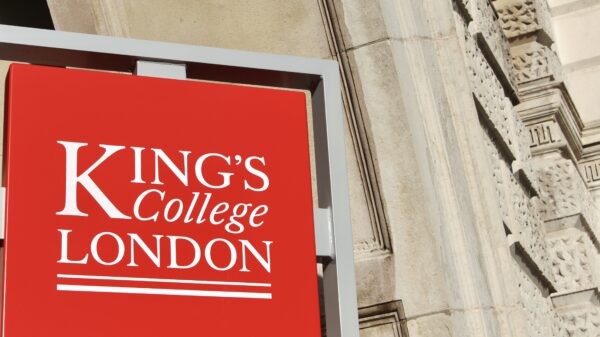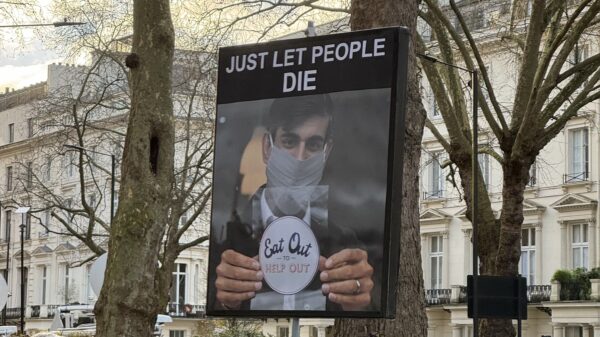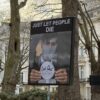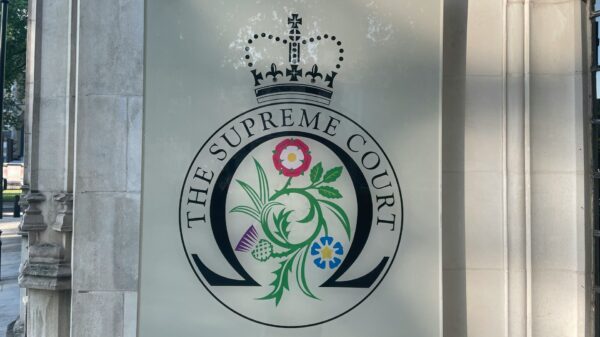Staff writer Douglas Gibb outlines the Conservative Party’s record based on their last 14 years in government and outlines the rationale for change at the general election.
In the knowledge that a record low number of people are giving serious consideration to the possibility of voting Conservative on 4 July, it would be instructive to scrutinise their record.
Due to the myriad ways in which the Conservatives have made Britain worse, this piece is in no way an exhaustive attempt at documenting all of their failures.
Economy
GDP per capita has virtually flatlined. In fact, following the pandemic, GDP per capita peaked at £7116 in 2022 Q1, and decreased in every successive quarter until 2023 Q4 (the latest for which there is ONS data), when it was £6903.
The Institute for Fiscal Studies (IFS) have conducted research showing that the British economy has grown slower since 2010 than Germany or the United States, and since 2020 we have grown slower than France too. The same IFS paper shows that the average growth rate since 2010 has been a pitiful 0.4%. The paper put the economic situation in rather stark terms: following the Great Recession, we have seen the longest period of stagnant wages since the Napoleonic Wars (which ended in 1815). We can also see that investment in British business has slowed since June 2016 and that national debt as a percentage of GDP had increased under the Conservatives even before the pandemic.
In a separate IFS paper, Paul Johnson points out that while direct personal taxation is at a 50 year low, which agrees with comments by the Chancellor Jeremy Hunt, the tax burden is the highest it has been in almost 70 years, which is partly down to taxes on things other than income, such as VAT. It should be noted that what Hunt was referring to was an average. If one looks at pensioners specifically, they have not benefited from the tax changes made, despite the fact that they are a key part of the coalition of voters that have kept the Conservatives in office (see “Vote by age”).
Nor should we forget how expensive everyday goods have become. Case in point, paying up to £10 for a tub of Lurpak. Put in more scientific terms, the consumer price index (CPI) reached a staggering 11% in 2022. It is true that other countries also faced economic challenges due to the invasion of Ukraine and supply chain issues. However, other countries have done a better job at responding to these problems. The French government capped rises in energy bills at 4%. Ofgem, however, capped rises in tariffs at 12%.
While inflation has since been brought back down to its 2% target, and nominal wage growth has begun to outpace inflation (i.e. real wage growth is positive), wages have not improved enough to cancel out the effects of high inflation over the past three years or so. In fact, the Resolution Foundation (p.11) estimates that it will take until the end of 2027 for wages to return to pre-crisis levels.
Overall, we have a situation where people’s incomes are lower in real terms than they were several years ago and they are being taxed more due to fiscal drag. Fiscal drag occurs when income tax thresholds are frozen (rather than rising at least in line with inflation), meaning as nominal incomes rise, so do income tax bills. For example, a middle-income earner on £62,000 will pay an additional £1,600 in income tax because of the frozen thresholds (p.3). Someone earning twice as much will face the exact same rise of £1,600, meaning middle-income earners are more heavily hit when considered as a share of income.
Housing
House building has been snail-paced. The Conservatives pledged to build 300,000 new homes every year. However, in every year since 2010, house building has been well below 300,000, and it has not exceeded 215,000 (according to ONS figures). The Big Issue says that even if the 300,000 target was met, it would take 50 years for the 4.3 million housing deficit to be cleared.
Whereas a house would have cost four times an average annual income in the mid-1990s, that ratio has increased dramatically to nine times your annual income. In London specifically, the idea of buying a house is unthinkable to many, so what about renting? You can expect to pay around half of your income on rent.
The failure to keep up with house building over the last few decades (this includes the Blair and Brown ministries) has led to a clear trend of increasing overcrowding in social and private rent, including after 2010. Unsurprisingly, this problem is most common in London, where more than 11% of homes are overcrowded. In some areas, such as West Ham, nearly a quarter of homes are overcrowded. It is worth acknowledging that there is an ethnic component to these problems. For example, 28% of British-Bangladeshi households are overcrowded, even though they make up less than 1% of the total population.
In Autumn 2010, there were 1,800 rough sleepers, but 13 years later that had more than doubled to 3,900. It is important to note that these figures are very likely to be below the true number. One significant contributor to inaccuracies is underestimating the number of women sleeping rough, perhaps by as much as nine times.
Immigration
The Conservatives promised in 2010 to bring annual immigration down to the tens of thousands, an undertaking repeated in 2015 and 2017. In the 2019 manifesto, there was not such an explicit commitment, although it did say that “overall numbers would come down” and Suella Braverman revived the pledge in 2022.
These promises were unambiguous as far as quality (as opposed to quantity) was concerned, and yet the Conservatives have done the exact opposite of what they promised to do. In 2016, net migration stood at around 300,000 a year. Seven years later and with Brexit in the rear-view mirror, that figure has more than doubled.
There is also the issue of the Rwanda scheme. This would send refugees who were people-smuggled across the English Channel by small boat to Rwanda, where their asylum claims would be processed, but they would not be permitted to return to Britain. This is a dead cat not intended for actual implementation. One of the reasons why this scheme is so risible is that Britain has granted asylum to refugees from Rwanda, meaning the government recognises it is dangerous. In an exercise of doublethink, the government has also used parliamentary sovereignty to declare it safe. This causes epistemological problems of sufficient magnitude as to lay upon the logical and semantic resources of the English language a heavier burden than they can reasonably be expected to bear.
Healthcare
In 2010, the NHS waiting list for hospital treatment had 2.5 million people on it. This figure increased consistently over the following 14 years, peaking in 2023 at 7.8 million, with a very slight decrease thereafter. The 18-week treatment target has been failed every year since 2016. In 2010, the frequency of 4+ hour waits in A&E was less than 10%, now it’s over 45%. The statistics for 12+ hour waits in A&E are extraordinary. Such waits were virtually unheard of before the mid-2010s. But around 2015, molehill sized peaks began to appear, and in the aftermath of the pandemic, these molehills turned into mountains. In late 2021, the number of 12+ hour waits exceeded 10,000 for the first time (having been near-zero a decade prior), and within two years it was approaching 55,000 (ibid.) To describe the NHS as being in disrepair does not even begin to approximate how bad a shape it is in.
The British Medical Association says that junior doctors received a 26% pay cut between 2008/9 and 2021/22. The situation was similar for nurses. Between 2010/11 and 2022/23, nurses in every band of the Agenda for Change pay framework saw their wages cut in real terms, often by more than 10%. This is no way to thank the heroes who fought on the frontline during the pandemic. At the time of writing, junior doctors are still striking (as is their right) in their demand for a 35% pay rise.
Another point worth considering is that only 37% of new doctors come from Britain, meaning we are over-reliant on doctors from the European Economic Area or elsewhere. This calls into question whether Britain is adhering to the World Health Organisation code of conduct. The code says that developed countries should not actively recruit personnel from red list countries. In spite of our moral and legal obligations not to recruit medical personnel from these developing countries, there has been an extreme rise in the number of nurses trained in red list countries. In 2017/18, there were just 190 new nurses who had been trained in a red list country, but in 2022/23 the number was 6,100.
A study in the Journal of Epidemiology and Community Health found that more than 330,000 people died as a result of austerity in the period between 2012 and 2019. One by the Institute for Health Equity at UCL found that the lives of more than a million people were shortened because of health inequalities.
Crime
In addition to the Conservatives’ failures on the economy, housing, immigration and healthcare, there is the issue of crime. According to the ONS, the number of recorded crimes involving knives or sharp instruments in 2010/11 was 36,000. In 2019/20, it peaked at 54,300 and in 2022/23 (the latest year for which statistics are available) there were 50,500 knife crimes. On top of this there is the astonishing fact that just 2% of recorded rapes lead to convictions. The equivalent figure in 2010 was 6%. Undoubtedly, such a low number should make any any government feel ashamed, but neither should it be forgotten that things have got noticeably worse than this already shameful state of affairs.
Conclusion
On the matter of shame, it was under the Conservatives that for the first time in the UN’s history, a country was held to be in breach of the Convention on the Rights of Persons with Disabilities. The purpose of the convention is “to promote, protect and ensure the full and equal enjoyment of all human rights and fundamental freedoms by all persons with disabilities, and to promote respect for their inherent dignity.” Among other things, it guarantees disabled people the rights to life, equal protection of the law, full participation in society and an adequate standard of living. The breaches were found to be “grave and systematic.”
There are, of course, many things I have omitted, among them the trebling of tuition fees, schools crumbling, and various scandals (Partygate, Chris Pincher, PPE contracts, etc.).
It is because of these innumerable failures that I implore anyone thinking of voting Conservative on 4 July not to vote for them. It would do us all good to remember that behind every one of these statistics there are people and families. With that in mind, I would like to end with a quote.
Just remember this. One Eva Smith has gone – but there are millions and millions and millions of Eva Smiths and John Smiths left with us, with their lives, their hopes and fears, their suffering and a chance of happiness, all intertwined with our lives and what we think and say and do. We don’t live alone. We are members of one body. We are responsible for each other. And I tell you that the time will soon come when, if men will not learn that lesson, then they will be taught in fire and blood and anguish.
Inspector Goole, An Inspector Calls.
















